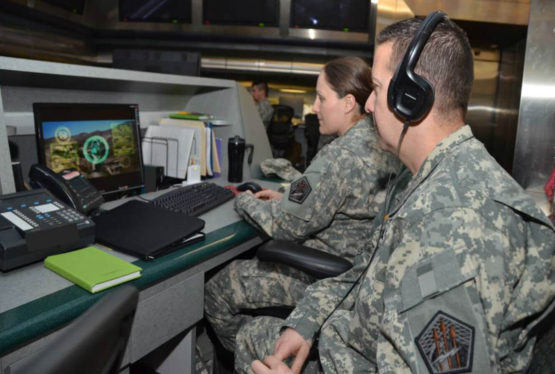As data breaches, malware infections and software vulnerabilities become even more prevalent in today’s technology-driven world, IT professionals seek new ways to identify and end threats before they materialize. A wide variety of cybersecurity professionals — including cybersecurity engineers, cybersecurity analysts and cloud architects — help protect organizations of all sizes each day. Cyber operators also play a critical role in the modern IT space.
Cyber Operators work with highly sensitive information in high-security environments. They can be hired to IT firms or employed as members of the armed forces or through allied nations. Cyber Operators work collaboratively with other government departments and agencies to provide a secure cyber environment.
What is a Cyber Operator?
Cyber Operators observe communication networks to detect and respond to unauthorized network access attempts. They are also tasked with observing and analyzing network traffic to protect systems and information. They must monitor computer and device operations and respond to events in reaction to triggers or any unusual activity.
Depending on their employer and their work environment, a Cyber Operator might also have additional responsibilities.
Cyber Operators: terms to know
As a Cyber Operator, there are a few terms you’ll need to know. These terms will characterize your daily duties in a Cyber Operator role.
Cybersecurity
You’re likely familiar with the concept of cybersecurity: the state or process of securing and recovering networks, computers, devices and programs from any cyberattack. Cybersecurity also includes the prevention of a cyberattack, through fortification of an organization’s devices and data.
Cyber operations
Cyber Operators are primarily concerned with cyber operations, an interdisciplinary major that covers the entire scope of cyberspace and related operations, both technical and non-technical. Cyber Operators provife macro-level strategy in a cybersecurity environment, and also provide valuable support in day-to-day cyber activities. Cyber operations also includes any strategies you use to protect a company’s employees, while they perform their essential functions each day.
Cyberspace
Cyberspace is perhaps a term more popular by science fiction and movies than it is in a cybersecurity environment. Still, cyberspace is an important concept for Cyber Operators to know. As a Cyber Operator, you’ll help to protect your organization’s cyberspace — your virtual space created by interconnected computers and computer networks on an internet.
Cyber warfare
The concept of Cyberwarfare refers to the use of digital attacks, such as computer viruses like malware and ransomware, to interfer with another party’s cybersecuritry protocols, devices, data or users. Cyber warfare can create large-scale technological destruction. As a Cyber Operator, you’ll help to guard you systems against cyber attacks that might constitute cyber warfare.
Cyber terrorism
Cyber terrorism is the use of the internet to conduct violent acts and large-scale disruption to computer networks. Cyber terrorism can cause widespread fear in society, often for political or military benefit.
What skills does a Cyber Operator need?
A cyber operator will need the following skills to be good at what he/she does:
- Computer networking concepts and protocols
- Implementing network security methodologies
- Deploying risk management processes
- Understanding laws, privacy principles, regulations and policies that govern cybersecurity and privacy
- Cyber threat and vulnerability diagnosis
- Data backup and recovery
- Interpreting cryptologic capabilities, limitations and contributions to cyber operations
- Researching database theory
- Installing evasion strategies and techniques
- Constructing and monitoring networks
While the exact skills you’ll need will depend on several factors, Cyber Operators are commonly expected to understand the above concepts.
What are the responsibilities of a Cyber Operator?
Your responsibilities as a Cyber Operator might include some, or all, of the following tasks:
- Collect, process and analyze network data
- Identify network vulnerabilities
- Manage a computer network environment
- Conduct defensive and active cyber operations
- Apply security and communications knowledge in the field of information technology
- Keep up with classified and unclassified records and publications.
These and other responsibilities should keep you busy each day as a Cyber Operator.
Interested in a Cyber Operator role? Here are your next steps.
Candidates considering the Cyber Operations field must have a substantial interest in both computers and information technology.
Look for education that builds a strong foundation working with computers, routers, servers and any other internet-dependent computer systems. Your Cyber Operator education should also foster awareness of the politics and legalities of cyber operations. Candidates who like working with computer systems or show curiosity in the technical foundation for computer and network security can achieve great success in this field.
Together, cybersecurity and cyber operations represent two of the fastest-growing industries in the United States. With cyber threats foreasted to grow more prevalent over the course of the next decade, Cyber Operator professionals should remain in high demand.
Interested in learning more about the world of cybersecurity? Take your first steps toward the cyber career you deserve through our Cybersecurity Bootcamp.
https://www.quickstart.com/information-security/how-to-become-a-cyber-operator/




